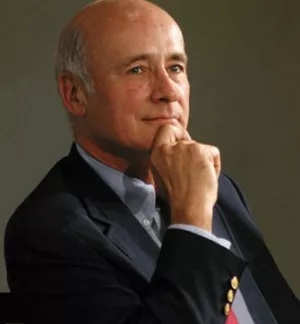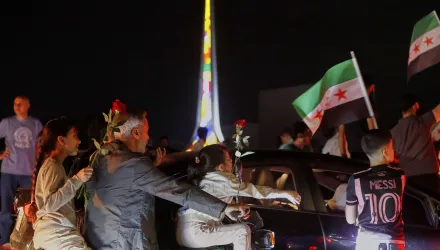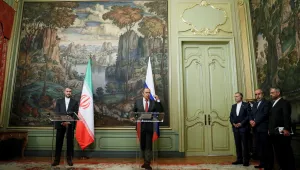Moscow may try to link cooperation in the Syrian crisis to relief from sanctions.
For the last fifty-two years, leaders from around the world have gathered in Munich for an annual review of world security problems. This year's discussion focused on the civil war in Syria. Not only is Syria a political and humanitarian crisis in the Middle East, but the refugee flows from that war are causing a political crisis in Europe. Some observers foresee the unraveling of the Schengen zone for free movement of peoples that has become a major accomplishment of European unity. In contrast, last year the focus in Munich was on Russian aggression against Ukraine. Ironically, it was easier to garner a consensus about a Western response to that threat. Behind both topics, however, lies the question of what Russia wants. At the same Munich Security Conference in 2007, Vladimir Putin had warned of a more assertive Russian policy against the West.
Last weekend, I listened as Russian Prime Minister Dmitri Medvedev told the conference that the world has "fallen into a new Cold War" for which he blamed the North Atlantic Treaty Organization (NATO). This came despite the fact that just a few days earlier, Secretary of State John Kerry and Russian Foreign Minister Sergei Lavrov had met with others to try to arrange a ceasefire in Syria....
Continue reading: http://www.nationalinterest.org/feature/the-russian-connection-between-syria-ukraine-15237
Nye, Joseph. “The Russian Connection Between Syria and Ukraine.” The National Interest, February 17, 2016





